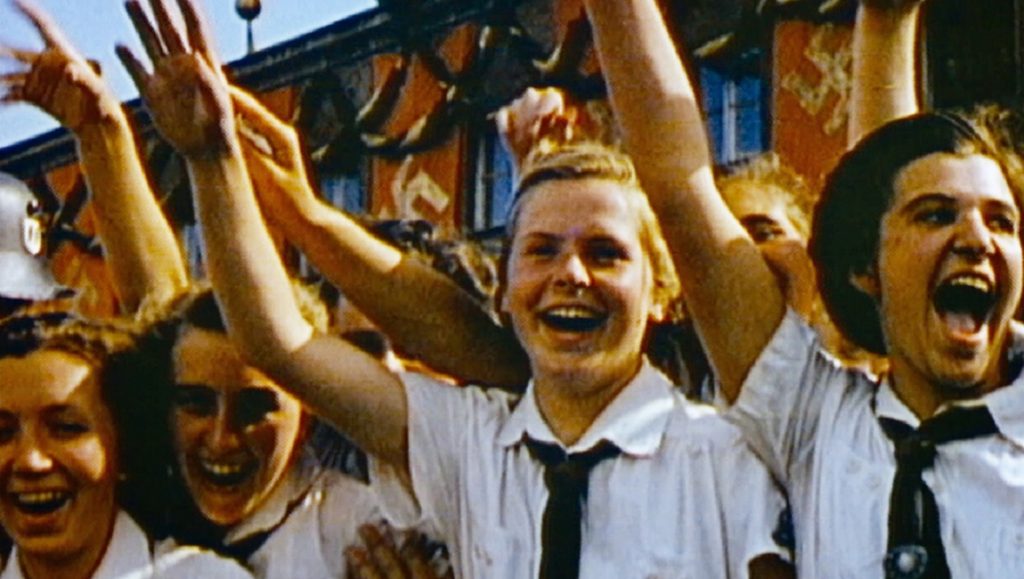Final Account is not just a reckoning with history, but with its present lingering, executed with uncompromising force and first-hand immediacy.
Released after the death of director Luke Holland, Final Account serves as a culmination of a decade’s worth of accounts of the Final Solution by none other than the final living generation who witnessed it. And so, a haunting realization pervades Luke Holland’s final film, one that straddles both intimacy and distance, and distills horrors out of them. On one hand, the pre-meditated and widespread extermination of over six million Jewish people, alongside other enemies of the state and those deemed “unfit for living,” still occupies living memory, unwilling to shed its sins and relegate it to the forgotten dustbins of history. On the other hand, this living memory is tenuous; as soon as the final generation leaves this earth, the witnesses to one of humanity’s worst atrocities will cease to remember. Too close for comfort, yet too far to take its lessons to heart: such is the unfortunate nature of historiography, whose subject — history — tragically, farcically, and stubbornly repeats its greatest mistakes. And while such an unfortunate truth is self-evident, it is equally so for the documentarian, to tackle with immediacy and unflinching honesty the lies that prop up this truth.
Adopting a talking-heads structure, for the most part, Final Account tracks down and interviews a number of octo- and nonagenarians in Germany’s provincial towns, many of whom had an active hand in perpetuating the Holocaust. The label of perpetrator quickly comes under scrutiny, as some are quick to denounce it. “We didn’t support the party. But we liked the uniform. We went along with it because we enjoyed it,” contends one of the women as justification for her membership in the League of German Girls, the women’s equivalent of the Hitler Youth. Disassociation from the direct lineage of war proves a frequent theme among the testimonies recounted by her peers, which largely confine themselves to the safety of the quotidian. Civilians living close to the death camps mention “hushed whispers” and nothing more percolating through the air as they ignored, out of fear for their own lives, the horrors that lay beyond the gates. Under such circumstances, as the majority of them have argued, how could they be seen as active perpetrators of Nazism, or even complicit in its tyranny when said tyranny applied equally to them?
This question of guilt permeates Final Account’s outwardly calm approach toward its subjects, exemplifying the distressing moral ambiguity underpinning their whole lives, both during the war and in its subsequent years. Though Holland could have more radically approached not just the perpetrators and those complicit in violence, but also (and especially) some of the truly ordinary citizens with no effective military and political ties, he nonetheless succeeds in treading familiar and well-trodden ground, portraying the unremarkable and banal actions of those behind the face of evil. Like Claude Lanzmann’s Shoah, an otherwise vastly different work in size and scope, Final Account peers beyond the window-dressing of post-war de-Nazification to capture the intersecting influences of national and personal shame, or their lack thereof, in an attempt to articulate the conditions that permitted the tragic allure of Nazism. Tellingly, a divergence persists between Germany’s moral repentance and that of her people. As a Hitler Youth member, “you have no time to orient yourself as a civilian,” recalls one member who later became an SS fighter. Inundating citizens with poisonous rhetoric since birth, Nazism continues to hold incredible sway over their beliefs, asserting a fundamental righteousness to their convictions despite the ugly realities which unfolded.
One of Final Account’s most controversial interviewees denies the moral failure of Nazism altogether, shifting responsibility onto those under Hitler who disobeyed his direct orders and resulted in the unfortunate killing of Jews instead of simply chasing them out of Germany. This denialism, though likely shared by a minority, underlines a frightening refusal to reckon with an ideology decades after its demise and calls into question whether an ideology this extreme may truly ever face its demise. A dialogue session between university students and a surviving SS member later in the film brings this question to a sobering close as the aged veteran angrily refutes accusations of moral pandering and un-patriotism, urging his audience to resist the seduction of extremist philosophies. One look at extremism around the world today, however, and it is evident such closure merely exists as fanciful bromide. As Holland confronts this inconvenient truth with uncompromising force and first-hand immediacy, he also encapsulates its irrevocable loss of dignity through the panoramic shots of several landmarks — railways, camps — interjected throughout the film; gliding up from the ground and into the sky, just like the ashes of those murdered leaving the chimneys, they appraise an idyllic horizon tainted by Nazism’s permanent legacy. Insofar as Final Account surveys the last of its followers, it espouses a relieved finality, but as a document made to endure the revisionism and relativism that appears when one least expects it, it offers living proof that the need for accountability is never final, especially not today.


Comments are closed.